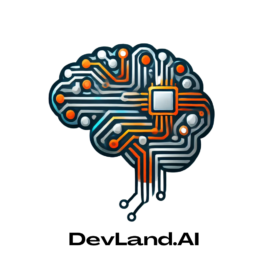The Future of Data Analytics: Navigating the Next Frontier
In an era where data is often referred to as the “new oil,” the future of data analytics promises to be transformative, reshaping industries, driving innovation, and empowering businesses to make smarter, data-driven decisions. As we look ahead, several key trends and advancements are poised to define the landscape of data analytics, enabling organizations to harness the full potential of their data assets.
1. Artificial Intelligence and Machine Learning: The New Norm
Artificial intelligence (AI) and machine learning (ML) are no longer just buzzwords; they are becoming integral components of modern data analytics. These technologies allow for the automation of complex data processes, predictive modeling, and the extraction of insights from vast datasets at speeds previously unimaginable.
In the near future, we can expect AI-driven analytics to become more accessible and user-friendly, allowing non-technical users to leverage advanced analytics without requiring deep technical expertise. Automated machine learning (AutoML) platforms, which simplify the creation of ML models, will play a significant role in democratizing data analytics, enabling businesses of all sizes to benefit from AI-powered insights.
2. Real-Time Analytics: The Demand for Instant Insights
The need for real-time data analytics is growing as businesses strive to make faster, more informed decisions. The days of relying solely on historical data are fading; organizations now require up-to-the-minute insights to respond to rapidly changing market conditions, customer behaviors, and operational challenges.
Edge computing, combined with advancements in data streaming technologies, will be crucial in enabling real-time analytics. By processing data closer to its source, organizations can reduce latency and gain immediate insights, whether it’s in manufacturing, finance, retail, or healthcare. This shift towards real-time analytics will empower businesses to be more agile, proactive, and competitive in an increasingly fast-paced world.
3. Data Privacy and Ethics: Navigating the Complex Landscape
As data analytics becomes more powerful, the ethical considerations surrounding data privacy and security will take center stage. With the rise of stringent data protection regulations like GDPR and CCPA, businesses will need to adopt more transparent and ethical practices in their data analytics processes.
The future will see the emergence of privacy-preserving data analytics techniques, such as federated learning and differential privacy, which allow organizations to analyze data without compromising individual privacy. These methods will be essential in building trust with customers and ensuring compliance with evolving regulatory frameworks.
4. Augmented Analytics: Enhancing Human Decision-Making
Augmented analytics represents the convergence of AI, ML, and data analytics to enhance human decision-making. By automating data preparation, insight discovery, and even the generation of recommendations, augmented analytics tools will help users make more informed decisions faster.
As these tools evolve, we will see a shift from traditional dashboards to more intuitive, conversational interfaces that allow users to interact with data in natural language. This will make data analytics more accessible to a broader audience, driving greater adoption and empowering more stakeholders within organizations to leverage data for decision-making.
5. The Rise of Data Democratization
Data democratization refers to the process of making data accessible to a broader audience within an organization, beyond just data scientists and analysts. As businesses recognize the value of being data-driven, there will be a push to provide all employees with the tools and training needed to work with data.
Low-code and no-code analytics platforms will play a pivotal role in this democratization, allowing non-technical users to create their own data workflows, reports, and visualizations. This trend will foster a culture of data-driven decision-making across all levels of the organization, leading to more innovative solutions and competitive advantages.
6. Integration of Big Data and IoT: The Next Wave of Innovation
The explosion of data generated by the Internet of Things (IoT) presents both challenges and opportunities for data analytics. As more devices become connected, the volume of data available for analysis will increase exponentially, requiring advanced analytics tools to process and derive insights from this data.
The integration of big data analytics with IoT will unlock new use cases, such as predictive maintenance in manufacturing, real-time monitoring in healthcare, and smart city applications. This convergence will drive innovation across industries, enabling businesses to optimize operations, improve customer experiences, and create new revenue streams.
7. The Future Workforce: A Blend of Humans and Machines
As AI and automation continue to evolve, the future workforce in data analytics will likely be a blend of humans and machines working together. While AI will take over repetitive and mundane tasks, human expertise will remain crucial for interpreting complex data, making strategic decisions, and addressing ethical considerations.
The rise of AI-powered analytics will also necessitate the development of new skills and roles within organizations. Data literacy will become a fundamental skill for all employees, and there will be a growing demand for professionals who can bridge the gap between data science and business strategy.
Conclusion: Embracing the Future of Data Analytics
The future of data analytics is bright, with endless possibilities for innovation and transformation. As AI, real-time analytics, data democratization, and IoT continue to shape the landscape, organizations that embrace these trends will be well-positioned to thrive in the data-driven world of tomorrow. However, success in this new era will require a commitment to ethical practices, ongoing investment in technology, and a culture that values data-driven decision-making.
By staying ahead of these trends and preparing for the future, businesses can unlock the full potential of their data, driving growth, efficiency, and competitive advantage in the years to come.








